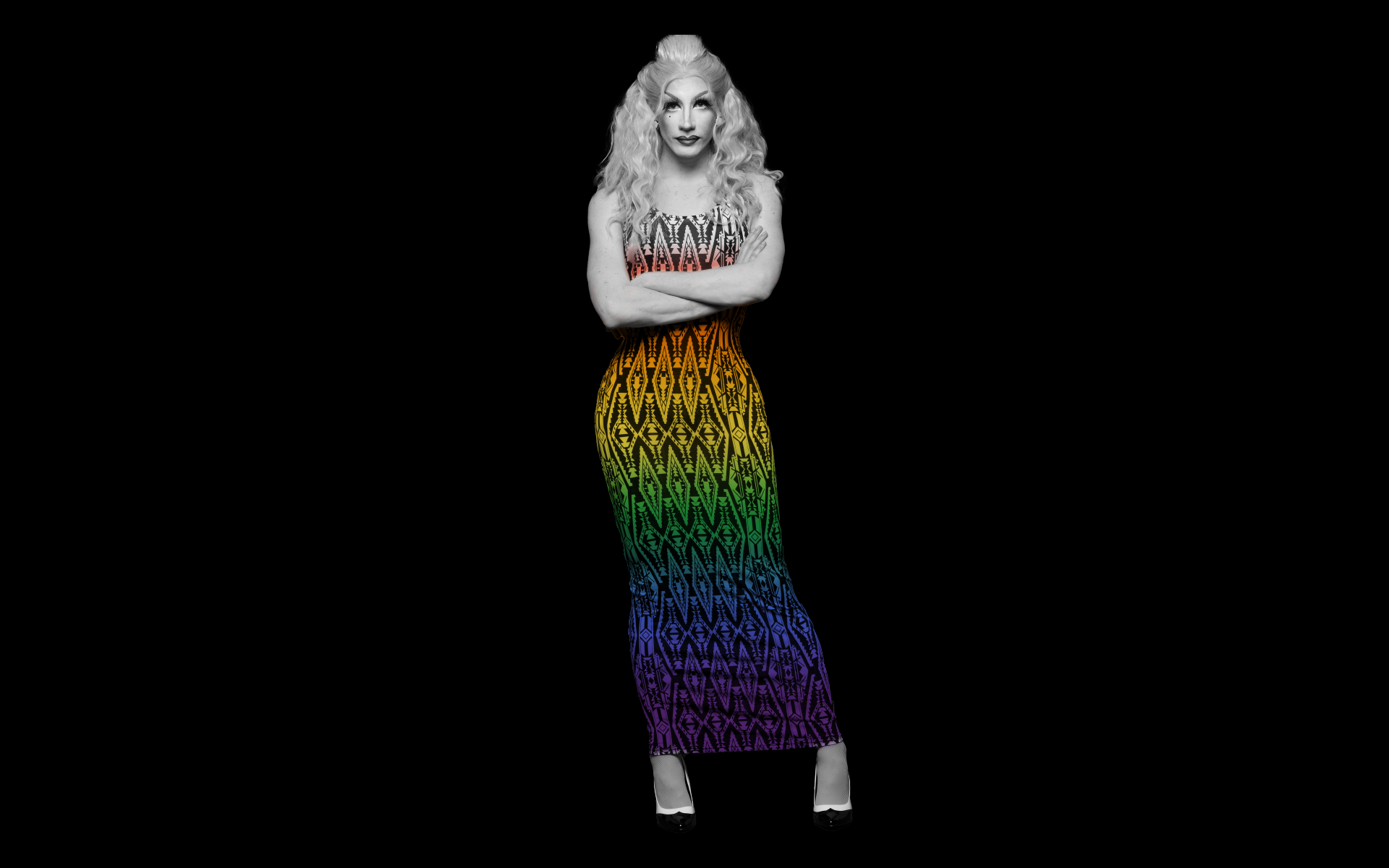Pride means being yourself, even when you’re being somebody else

How South African drag artist Callum Tilbury has carved out an award-winning career from multiple pronouns and personas.
A message pops up on my computer screen. A guest is in the Zoom waiting room. I press “admit” and wonder who will be there: 31-year-old Callum Tilbury, or the much older and venomous Lady Aria Grey?
As the pixels fizzle into place and the image comes into focus, I see that he/she/they has a beard.
“I was expecting Lady Aria Grey,” I say.
“It’s too early to be in drag makeup,” Callum chuckles. “Although she lives inside me 24/7, the line between us is a ‘grey aria’.”
Callum, whose pronouns are he, she, and they because “every pronoun applies to at least one part of me, so I don’t mind which you use” is a receptionist by day and Lady Grey by night.
Callum left South Africa in 2017 to study a master’s of fine art in London, and is now an award-winning writer, actor, drag queen, children’s author, stand-up comic and YouTube sensation.
Callum was born in London, lived in Cape Town, Botswana, Joburg, KwaZulu-Natal Midlands, Indonesia, back to KZN, Cape Town, and then a hop, skip and skedaddle to London, where he’s finally settling down.
“I always felt displaced so it’s nice to be able to put down roots,” he says.
Callum was always drawn to the theatre, but it was only when studying drama at the University of Cape Town that acting became a drag.
“In drama school you are trained to be a serious actor and find your gruffness but I wasn’t interested in that. When I saw drag, it was, ‘Wow, this is the magic I’ve been looking for.’ I realised that through drag I can embrace my femininity and duality and silliness, but still be smart.”
Watching the reality drag queen TV show, RuPaul’s Drag Race, he realised the potential to create a drag persona based on whatever he wanted — and what he wanted was a mysterious, kinda spooky, slightly venomous, grey-haired woman. So, after watching endless makeup tutorials, Lady Aria Grey was born.
Her name came from the villain Lady Elvira Grey in Fable, Callum’s favourite childhood video game.
“I changed Elvira to Aria to play on ‘grey area’. I love the idea of grey areas because drag is about playing with gender, being open to possibilities, being flexible, and making art.”
In high school, Callum’s drama teacher called him Mr Black-and-White because he was rigid, but as he’s grown older, exploring society’s grey areas inspires him.
Lady Grey is not a specific character beyond her grey hair.
“It’s difficult to nail her down. She’s always different,” says Callum.
“One of the most fascinating things about drag is seeing how drag queens often see their persona as 100% separate to them. When they’re in drag they’re in girl mode and become a different person, but that thought process doesn’t work for me because when I’m in drag I’m still myself. Lady Grey is just a different version of myself, an extension of my own brain.”
Callum says there’s an eternal twisting together of Callum and Lady Grey and they can’t ever be truly separated from each other.
This was the premise of his show Grey Widow, which tackles a relationship between a gay man and his drag persona, who develops a will of her own and exorcises herself from his body.
Lady Grey’s husband, Lord Earl Grey, wasn’t Lady Grey’s cup of tea – so she killed him, but she was really killing her own out-of-drag self.
Grey Widow, a hauntingly hilarious horror, won the 2019 London Horror Festival’s playwriting competition.
At the time, Callum was a freelancer, doing stand-up comedy, reading his short stories on stage, AND writing plays and TV scripts. But when the pandemic hit, London’s gig economy crashed. Finding work became difficult.
“I’ve managed to keep Lady Grey’s spirit alive but gigs have been thin on the ground,” says Callum. “Hence the beard. Although the last couple of years have been rough, change is coming and I’ve got a few projects in the pipeline. I’m also trying to rediscover my sense of pride.”
What does Pride mean to Callum?
“When I realised I was gay in about 2005 I went through this whole process of coming to terms with my sexuality. About six months later, I felt this quiet sense of contentment, where I just accepted myself. That’s what Pride means to me.”




